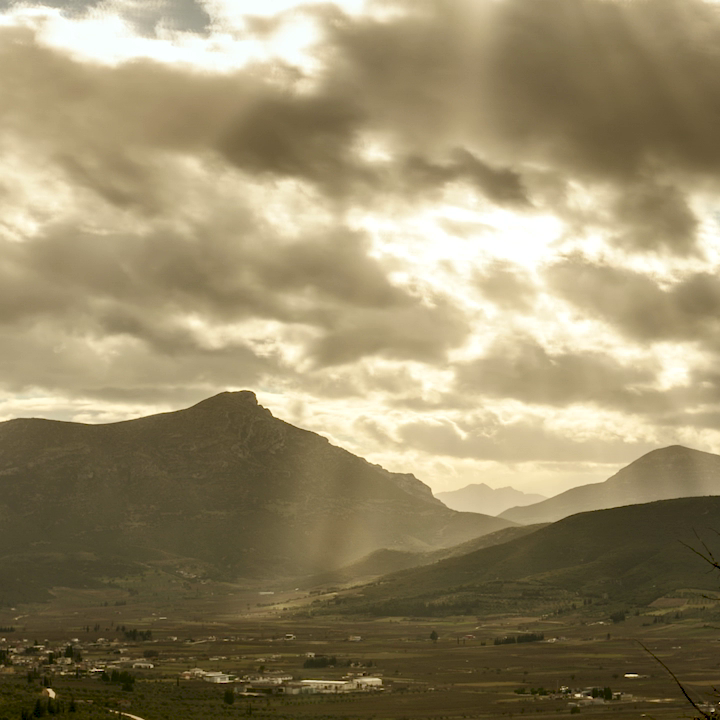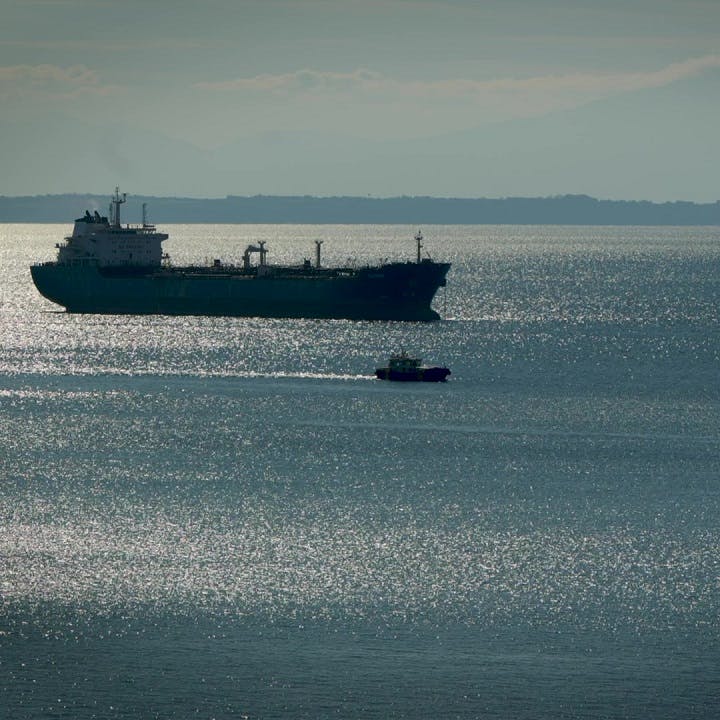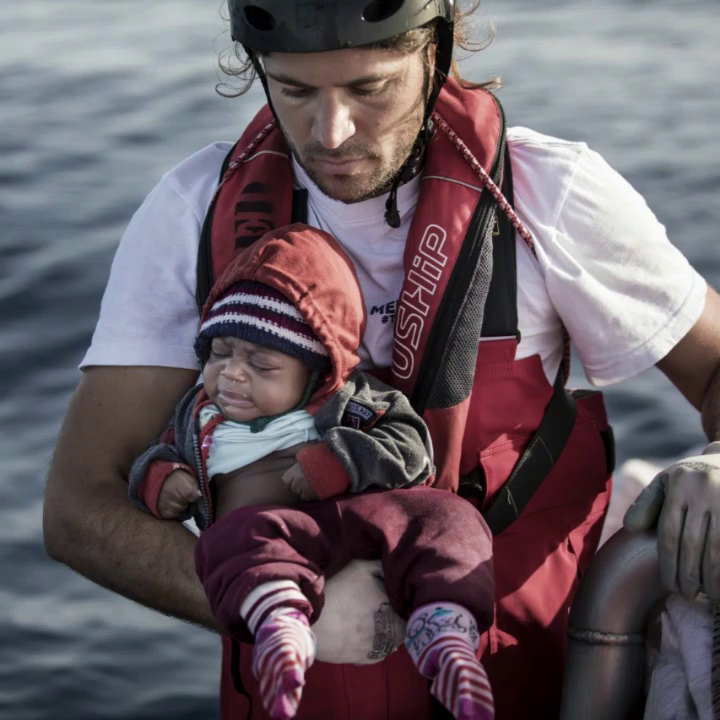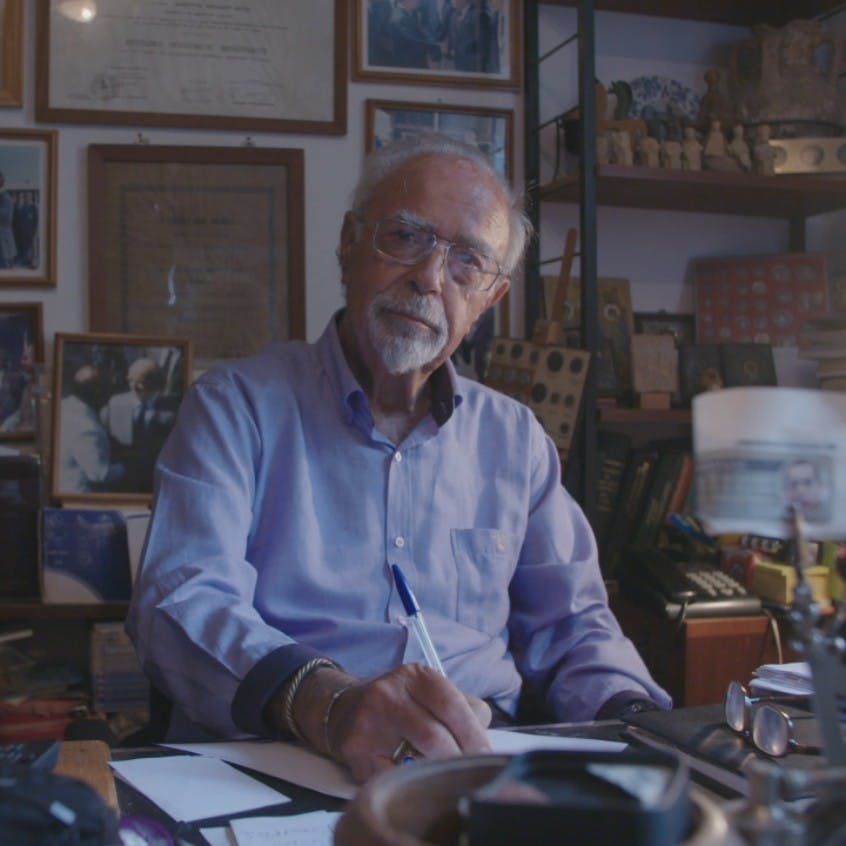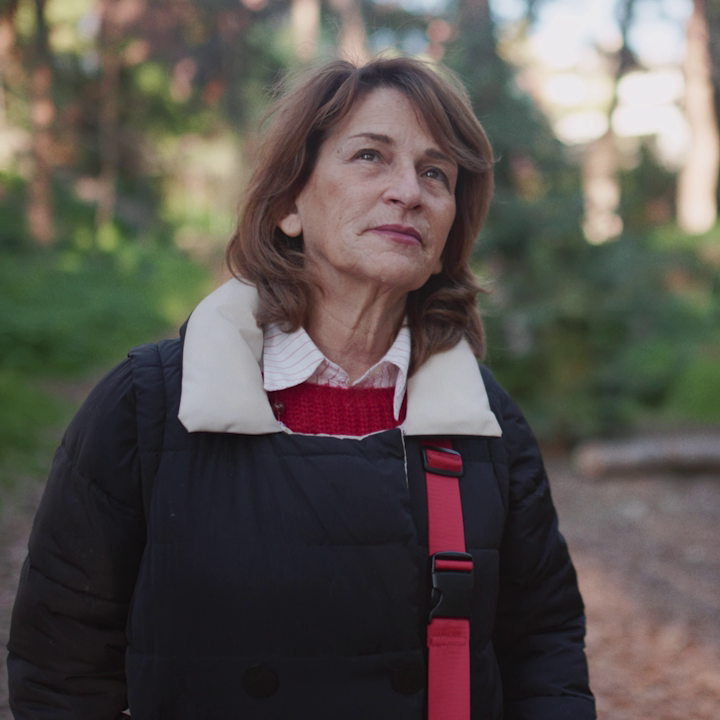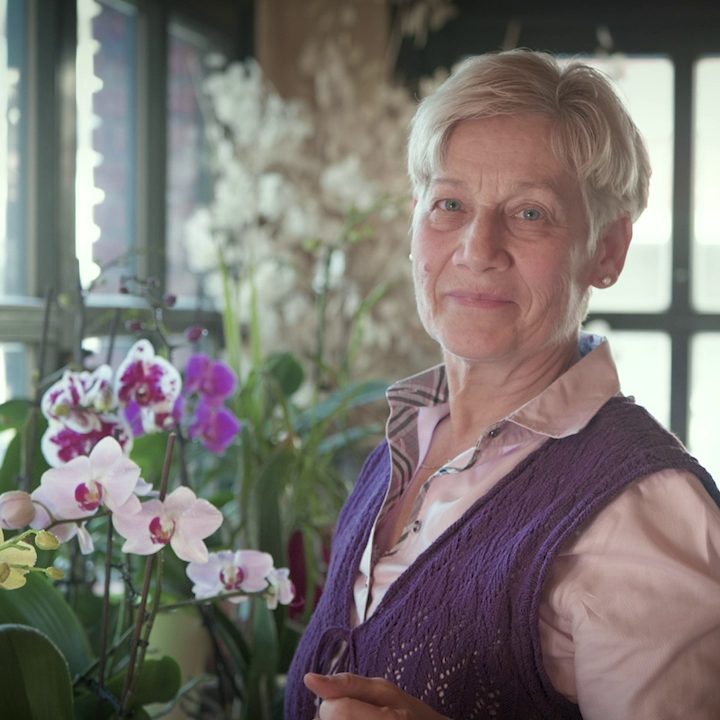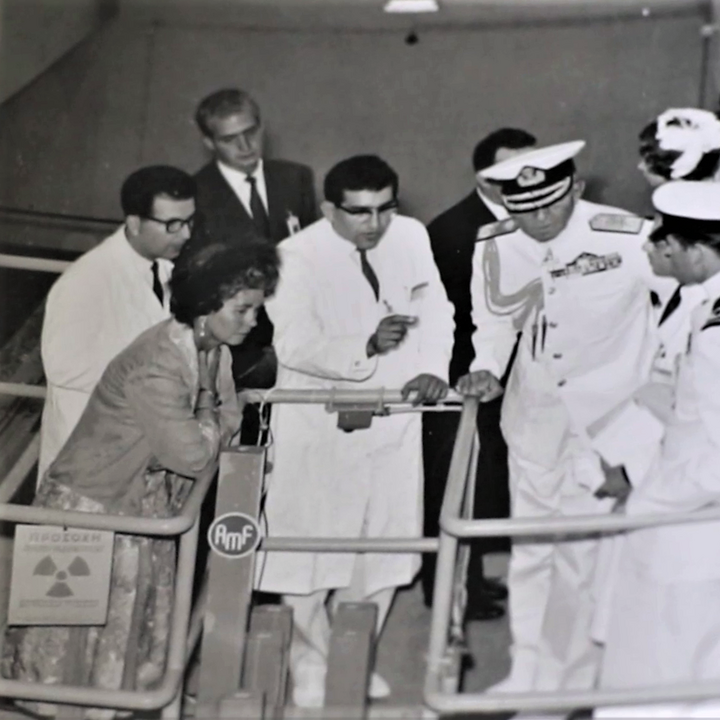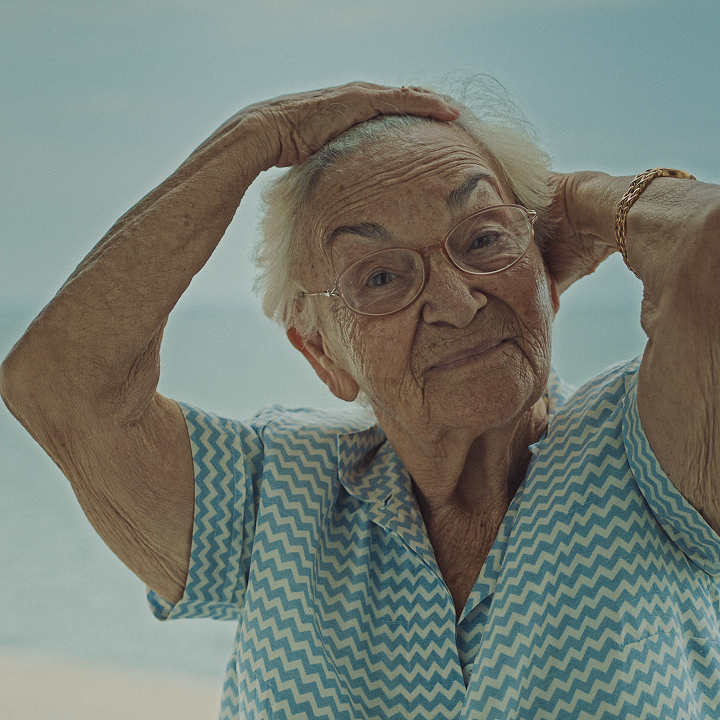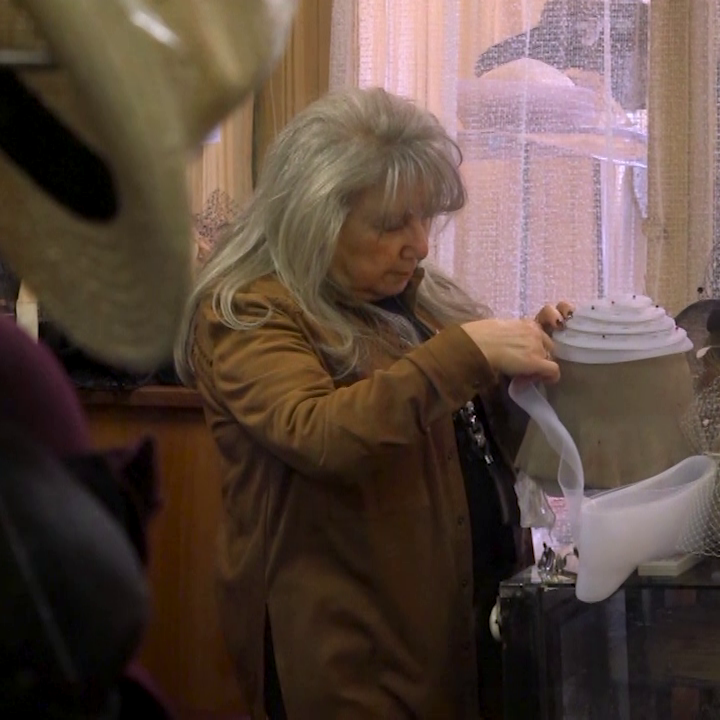Eleni Theodorou was my maiden name, now, I’m called Eleni Tzanni. My mother told me that the Germans had gone, and I was born when the Americans were sending food. I was born at a good time.
I helped my parents in the fields. From Gera in Plomari...On foot...Girls of 15, 16 years old...We ran...We went to work in other people’s fields in our clogs. We didn’t have slippers, or even shoes. We had what they called ‘tsokaretes’ [a type of clog]...They were made by cobblers...And we went. A day’s pay was five drachmas, then it was, three and a half drachmas...
I didn’t go to high school at all. As I was the eldest, I was like a mother. I didn’t go so I could help my mother on the land, to help bring up the children. Then, I learned hairdressing in Lesvos...Practical...At 16 and 17...And I went round all the villages. I didn’t have a salon.
My grandmother had died. A neighbour came to give her condolences to my mother for the death of the old lady; she was some sort of relative. I had—we had an oven in the yard—made dough in the morning. I had five loaves in the kneading-trough. I had also made a pie and took a little of it up to the neighbour, because my mother was there with the old lady, and I was downstairs lighting the oven and baking. My neighbour watched all this...
She went home, wrote a letter to her son in Australia, that: ‘I’ve found you a girl! So-and-so. I want to send you Eleni’. He even remembered me. He remembered me from when I was young. And he replied: ‘You should go, mother, and ask for her. She’s fine by me’. Matchmaking, in other words. And she [the neighbour] says: ‘Euphrosini, I want to send Eleni to Australia for Giorgos; for them to marry’.
My father was dead against it. There was no way he wanted this. Because when my little sister was born, someone said: ‘OK Nikolaos, you’ve had four daughters!’ And at that moment, my father said from by the fire in the kitchen: ‘What can we do? Let’s send one of them to Australia!’ And because he said it like this, he didn’t want to send me, the eldest child, abroad. He was saying ‘no’. But I really wanted to go. I was curious. I wanted adventure. I wasn’t the kind of girl who...I wanted more. I wanted to go.
I had a dream that I caught the cross—it was the Epiphany—and they shouted in Perama: ‘That girl caught the cross and wrapped it in a red cloth!’ I woke up in the morning and said: ‘Mama, it’s going to happen! I’m going to get engaged!’, I said, ‘I had a dream’.
And we were engaged. From a distance...
And then we began to write to each other, slowly but surely, by mail. Normal letters, not the other... ‘How are you?’, that kind of thing. ‘When can I come?’, ‘When will you come?’, ‘I can’t wait’. That kind of mail, innocent, not dirty stuff. I still have those letters upstairs.
I got engaged in ‘61 and left after two-and-a-half or three years, when my visa came. I mean, with Australia, it isn’t like saying, OK, I will go to Australia and you get on a boat and go. The visa comes, some Australian doctors come and they exam you naked as the day you were born. Here in Greece, in Lesvos. 19-year-old girls, 18, they stripped us and examined my mother and my father and then me: to approve of you going to Australia if you are healthy.
I left for Australia in 1965. The Patris went every month, and I left for Australia. The Patris and Ellinis, two ships. You begin, you take the Patris, they cut the ribbons that were hanging from the Patris, parents outside, people crying... At that time, all the youth of Greece were leaving for Australia.
We were two young girls travelling together. We had a double cabin on the Patris. Our fiancées were two brothers, and we were two girls: one from Palaiokipo and me from Plakado. The two brothers, our fiancées, were very proper. We were in a good class on board. They paid for our tickets. We just took a small chest, took it and left, nothing else. The boys, our husbands, got us everything else.
It was wild on board! Dancing, singing, that kind of thing... We had two old ladies with us who said: ‘If you do anything on board, your fiancées will find out!’ And we sat, bored, next to the two old ladies: Aunt Euphrosini and I forget what the other was called. They were going to see their children and they kept an eye on us so that we didn’t get into trouble!
We left Athens on the eve of the feast of the Epiphany, in January, on the eve of the feast of the Epiphany, and we arrived on 1st February. We got there on 1st February and married on 13th February. While we were still engaged, we slept at our sister-in-law’s. She wouldn’t leave us in the same house as the boys for 12 days. She took good care of us, our sister-in-law, like she was our mother.
I had brought my trousseau with me. My mother had had some of it: some old underwear that old ladies wear, sown on the machine. Then I got given them. How could I wear that underwear in Australia? I only put it on once; I showed my sister-in-law and she laughed at me. Life there was more modern.
I was married in ‘65 and in ‘66 I got pregnant with my child. We lived there together: three wives of three brothers, my mother- and father-in-law, in one house for four years. Every room was a bedroom. With the wife of the brother who was with me when I arrived, we ate from one saucepan. It was two years before the older wife arrived. I mean, the four of us cooked and ate from one saucepan, until we had our children. There was so much love. We got on so well. You need love when you emigrate, it’s not an easy thing to do. I mean, when you get there at first...You have to help each other. That’s how life is for an immigrant.
Australia is the promised land. Giorgos did not let me work in a hairdresser’s, he was a little jealous and I had to be very modern, to use nail polish, to wear that in an Australian hairdresser’s, and it was a little strange, and he didn’t let me do the job I had trained for. I was also a cutter, and I got a job in a factory. All the years I was there and working I worked in a factory, Koala Bay, making bears and kangaroos. The skins would arrive. They passed a law about how many they could kill for the factories, because, over there, they think of kangaroos and koalas like we think of the Acropolis and the Parthenon.
They told us: ‘You must make thirty pieces a day’. We—the Greeks and Italians—made eighty. And for the extra that you made, they gave you a bonus; they gave you an extra pay packet. But the Australians worked at their own pace. The Australians swore at us, like we swear now at Albanians because they work hard; that’s what they did to us, they said: ‘You are stupid’, ‘You are animals because you’ve made more work for all of us’. You see?
Once, at Sydenham Station, where I got off the train for the factory, two girls and two boys grabbed me and pushed me. I had a box with me, a box of bears from home to take to the factory, and they pushed me. And I understood what they said to me: ‘You are stupid, you bloody new Australians coming here!’ I answered, ‘Yes, yes’. How could I argue? They would have thrown me into an alley. ‘Yes, yes, yes!’ And they said, ‘This one’s stupid’ And they bullied me until I fell into the road, there on the main road, and I saw people. I thought: ‘OK, I got away with it’. When I got to the factory, I was white with fear.
On St George’s day, my husband’s name day. In the morning, my mother-in-law said to me: ‘Come on Eleni, don’t go to the factory today; it’s your husband’s name day; don’t go to work’. And I was furious, and I went: ‘Australians don’t know about St George and all that!’ I got up and left for the factory. Off I went. They put me on the press. It was a really big press, dear. It had a lever like this, a concrete slab and over it another slab, and it had a lever. As I was opening out the pattern of the kangaroo, to cut it from both sides, something happened to the press, and it slammed down on me! My hand was like a pancake, all my fingers broken. ‘Mr Ben!’ I shouted and fell into the arms of the old supervisor from the pain. I was hit by a pain under my armpit...They picked me up and took me to hospital. So…that happened.
When the factory had an order from China, there was a lot of work, and they would say: ‘Helen, do you want to take some work home?’ And the boss brought you work to do at home. And Stratis would shout: ‘Come on mummy; come inside now mummy; there is money in our cupboard!’ Because I had work at the weekends, I would leave poor Stratis alone with the television and the cartoons, and the poor kid moaned. What I want to say is that emigrating is a struggle. It’s not like you can go, everything is waiting for you and you made your fortune.
We came back in ‘73. Giorgos didn’t really put down many roots, and we took the decision to come back with Stratis when he was eight and a half, so that he didn’t become Australian and we would have to stay in Australia for ever. We made up our minds and we came back. I came back by plane. I didn’t come back by boat.
I came here, to the village. My mother almost fainted when we arrived, shouting: ‘Eleni! Eleni! Eleni, my daughter, my daughter!’ The roads seemed so narrow, like all the houses were going to fall on you and crush you. It all seemed very... After three years, I got a little crazy, I wanted to go back...
I got back into farming, and I’m still doing it now; seventy-five years old. I like it. I mean, I like what I do; I like the work. I don’t know, maybe it’s my character? I’ve earned money from hairdressing, bears, and from olives. I’m a busy person. I went to the fields today. I went and folded away the nets for the olives on our land with Giorgos. The poor man is eighty-three: he’s not so young. I’m with him and I tire him out, but I leave him, and he comes along more slowly. I say to him: ‘Let’s go to the caféneon for a while’.
I often think about Australia. I had a really good life there. Can’t you see the house? It’s still full of kangaroos. That’s my life. A kangaroo everywhere you look!


